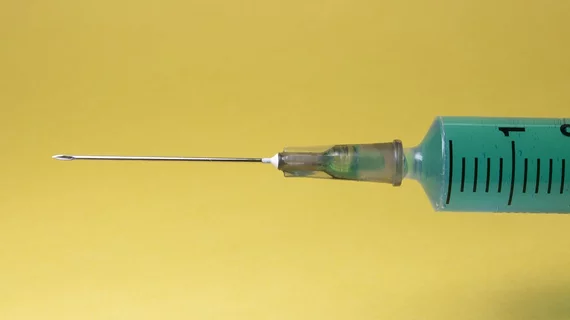HHS launches emergency drug packaging solutions with public-private blend
HHS is bringing together a public-private partnership to address emergency drug packaging with a U.S.-based solution using low-cost prefilled syringes.
The partnership will enable the Strategic National Stockpile to rapidly refill and finish hundreds of millions of prefilled syringes to respond to health emergencies such as the new coronavirus, according to HHS. SNS is the nation’s largest supply of potentially life-saving medicines and medical supplies for use in public health emergencies when local supplies are scarce and requested by state, local, tribal and territorial responders.
The new consortium for Rapid Aseptic Packaging of Injectable Drugs (RAPID) is expedited to yield results within six months as projects are under evaluation. Up to eight domestic facilities for the manufacturing of the syringes will be launched to build up a surge capacity.
The manufacturing will use a process called Blow-Fill-Seal, which features a low-cost, high volume, sterile plastic container that holds pre-filled medicines, according to HHS. The technology is ready for use for sterile medications like eye drops, nasal sprays and rotavirus oral vaccines.
“The ability to deliver vaccines and therapeutic drugs when they are needed the most is among our top priorities. As vaccines and therapeutics become available, we must not be caught short on our capacity to deliver emergency drugs to Americans in need,” HHS Secretary Alex Azar said in a statement. “The creation of RAPID is the right move at the right time, both for immediate and longer-term national public health emergency needs.”
The RAPID consortium will use BFS with an interlocking needle hub, eliminating drawing medicines from glass vials and reducing the reliance of SNS on glass vial manufacturing.
HHS’ Office of the Assistant Secretary for Preparedness and Response awarded up to $456 million for research and development of BFS prefilled syringes, rapid prototyping and stability testing of select countermeasures in the devices to Apiject Systems America, which is the public benefit corporation leading RAPID, HHS announced.

